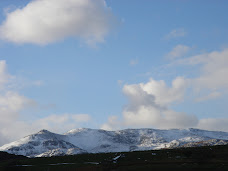No War In Ukraine, Stop NATO Expansion - StWC Zoom rally Thursday 10th February 6:30 pm
Speakers: Jeremy Corbyn MP, Diane Abbott MP, Andrew Murray (StWC Vice President), Medea Benjamin (Code Pink, US), Nina Potarska (Ukraine National Coordinator – Women’s International League for Peace and Freedom), Professor Richard Sakwa (Kent University) and Christine Buchholz (Die Linke MP 2009-2021, Anti-war campaigner).
As our political leaders bang harder the war drums for Ukraine, Chris Nineham chaired a packed meeting with over 400 attendees on Zoom and many more on social media - current YouTube views stand at over 2600. All of which reflect the overwhelming majority of international public opinion against war.
From Ukraine itself, Nina said that there is fear and worry on the ground but also an overwhelming appetite for peace. In the UK opinion polls are overtly against the war and similarly in the US, Medea informed us. Indeed, the Anti-war movement there had just staged 75 demonstrations across the country at 48 hours notice. Christine reported the same in Germany and across Europe.
Furthermore, there is already a basis for solution to any conflict in place -the Minsk agreement of 2015,which guarantees the Russian minority autonomy and the nationalist majority integrity of Ukraine. So why this clamour for war amongst our leaders?
- Geopolitical:The root of destabilisation in the entire region is systematic NATO expansion Eastwards which is prompting contradictory geopolitical strategies from all actors involved.
Meanwhile, Nina explained, Ukrainians themselves feel trapped between 2 stones: Western imperialism and Russian aggression. Ukrainian voices remain unheard in either official talks or media presentations or brandished threats of sanctions, incursions or retaliations.
- War profits: Medea and Nina agreed that war profits the military industrial complex in arms sales and increased military budgets. Christine Buchholz added that this conflict represents an East v West economic war turned into military confrontation, with German Capital being wooed by both Russian gas and US oil. In World Capitalism this is how nation states compete for global resources through the medium of militarism. Furthermore, this conflict illustrates how Fossil Fuel Capitalism and War engage in a dance of mutual escalation as they engender climate crisis.
- Political polling: War means a poll bounce for leaders. It affords them the opportunity to wrap themselves in their flags and cover up any unsightly political stains. Biden and Putin both have low poll ratings that need boosting, Macron has an election coming up, Johnson is mired in domestic crises and a foreign theatre might offer a crucial deflection for him to survive.
Which brings us to that gaffers’ lackey Keir Starmer and his scurrilous and disingenuous attacks on StWC. Accusing us of siding with Russians and being on the wrong side of history while he extolled the defensive virtues of NATO. Andrew and Jeremy set him right:
- Andrew accused him of falsifying our position to accommodate his Labour Party to the establishment. He said StWC had been proven right on every single conflict of the 21st-century at a time when the political elite was in unity in being wrong.
- StWC’s position on Ukraine is unequivocal: We are against any invasion, be it Russian or US-led NATO. We are for Ukrainian self-determination. We are for peace, dialogue and de-escalation.
- Jeremy added that just because you don’t want to go to war with a regime doesn’t mean you support it.
- NATO is not a defensive alliance but an expansive and offensive attempt to extend and maintain global US hegemony across Europe.
- StWC as an anti war movement has a duty to criticise a belligerent British government which is in the vanguard of provocation for war.
This was an incredibly dangerous moment and any conflict would be utterly calamitous for Ukraine and, with both sides having access to nuclear weapons, there is a horrific and frightening worse case scenario.
We want to see the British government change its confrontational policy stance and counter media assumptions that the only solution to this issue is a military one. We want to campaign, mobilise and argue for a policy that is instead turned towards peace, understanding and recognising the Human Rights needs of people on all sides.
We need security to mean peace not war. Nina wanted a political, psychological, and environmental security that guarantees freedom of speech, free elections, and security for peacemakers and human rights activists. Jeremy concurred that real security doesn’t come from war or conflict but from secure healthcare, education, housing and work in a peaceful world.
As Medea put it, we need to get off the unhelpful binary of “Russia is bad and America is good” and get onto the useful binary of “War is bad and Peace is good”.
















